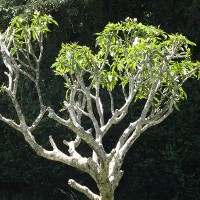Scientific achievements in 2013
In 2013 ESM delivered policy-relevant science related to the management of land based resources and also documented its scientific progress through publications, covering a very broad scope of scientific fields, including mathematics, physics, biology, environmental sciences, economics, and Earth science.
ESM also paid special attention to the development of novel methodological backgrounds for integrated assessment modeling, and continued to make further improvements to the ESM Integrated Modeling Cluster and Earth Observation Systems for which selected highlights are provided in the following six subsections:
Agro-Ecological Systems (AES)
In 2013 substantive progress was made in extending and validating the IIASA EPIC model for major crops in Europe and for assessing the biophysical impacts of a mean 2°C temperature rise. More
Earth Observation Systems (EOS)
Through its Geo-Wiki tool, Earth Observation Systems (EOS) in 2013 introduced new ways for citizen scientists worldwide to contribute to improving future global land cover maps. More
Environmental resources and development (ERD)
The Ecosystems Services and Management (ESM) Program group on environmental resources and development (ERD) tackles the multiple interrelationships that exist between the natural environment and the human systems that actually or potentially affect it - population, land use, soil, water, chemicals, climate, crop management systems, and global trade. More
Forest Ecosystem Management (FEM): Biomass studies
In 2013 the Forest Ecosystem Management (FEM) research group studied how to manage forests for maximization of forest stock and forest increment, as well as the availability of woody biomass for the energy sector. More
Methods for economic decision making under uncertainty (MEDU)
The Methods for Economic Decision making under Uncertainty (MEDU) group aims to develop and improve a wide spectrum of modeling methodologies, with an emphasis on economic incentives and mechanisms for mitigation and adaptation, including market solutions for implementing REDD-based measures and a special focus on decision making under uncertainty. More
Policy and science interface (PSI)
The Ecosystems Services and Management (ESM) Program’s Policy and Science Interface (PSI) group aims to strengthen various aspects of the role played by the ESM research program in the climate and land use change-relevant community. More

Research program








